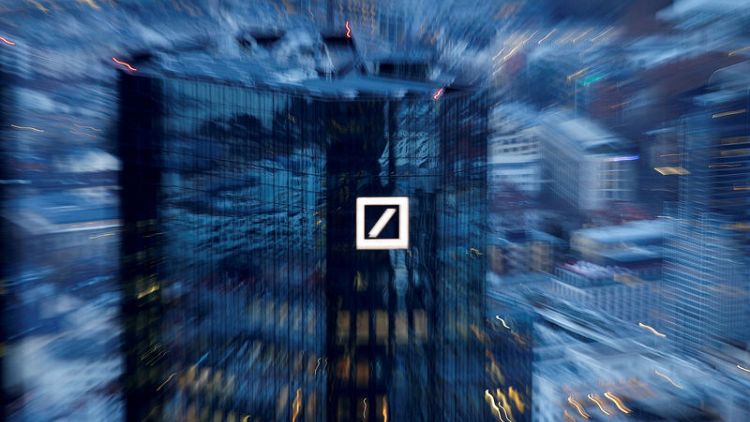By John O'Donnell
BERLIN (Reuters) - Lawmakers are warning Germany's finance minister that they will block any attempt to invest public money into a merged Deutsche Bank and Commerzbank, a deal which could require up to 10 billion euros (8.53 billion pounds) of fresh capital.
They intend to deliver this message at a closed-door meeting next week with Olaf Scholz, although it is unclear whether the Social Democrat finance minister still plans to attend.
"The merged bank will probably need fresh capital. One thing that we will not stand for is that the state gives more money," said Bettina Stark-Watzinger, who chairs the Bundestag's finance committee, emphasising a hurdle to any deal.
Deutsche Bank's exploratory merger talks with state-backed Commerzbank come after prodding by Germany's finance ministry, which is worried about the future of the country's biggest bank.
A deal would see Berlin become a shareholder in the combined group, which one German official said will need up to 10 billion euros of fresh capital because of restructuring costs and the fact that losses on investments could be triggered by a tie-up.
While German parliamentarians cannot stop the merger itself, they are warning that the Bundestag can block any fresh money to fill a capital shortfall, a crucial pillar to any deal.
"This goes contrary to one of the lessons of the financial crisis – that the taxpayer should not foot the bill for troubled banks," Stark-Watzinger said.
A spokesman for Scholz, who was the first to publicly reveal the merger talks but has since sought to distance himself from the process, insisting it is up to the banks to decide on their future, declined to comment, as did Deutsche Bank.
"UNTHINKABLE"
Lothar Binding, a leading Social Democrat on the committee, also said the government needed approval from the Bundestag if it wanted to back the merged group with fresh funds.
This would not be triggered if Germany's 15 percent Commerzbank stake automatically translates into a roughly 5 percent stake in the merged group, but approval is needed if the bank asks investors for fresh money, as expected.
"As things stand, it is unthinkable that the Bundestag would agree," said Binding. "Any synergies in this deal would come at an immensely high price: huge unemployment. 25,000 to 30,000 jobs could go. I'm against a merger."
Some conservatives are similarly opposed to the deal.
"We need competition in the banking market, not mega mergers," said Hans Michelbach, a lawmaker from the Christian Social Union, the Bavarian sister party of Chancellor Angela Merkel's Christian Democratic Union.
"How on earth can we sell a merger with this bank to our voters? I won't support it under any circumstances."
Frustration has been growing in parliament because lawmakers believe Scholz is ignoring their concerns.
Through its stake in Commerzbank, the German government would become a top shareholder in a merged group, playing a central role in any fusion. Lawmakers fear this puts it on the hook to shoulder losses if the bank later runs into trouble.
Berlin could yet pull the plug if it believes a deal would be politically unpalatable.
"This merger is rubbish. It will cost not only jobs but hard cash as well," said Lisa Paus, a Green party member of parliament, adding that she would reject any government participation in a capital hike.
"It is a running joke in parliament: 'Where is Scholz?', she said, adding that his failure to explain the merits of a merger had infuriated many lawmakers. "He doesn't speak to us."
(Additional reporting by Tom Sims in Frankfurt; Editing by Alexander Smith)



